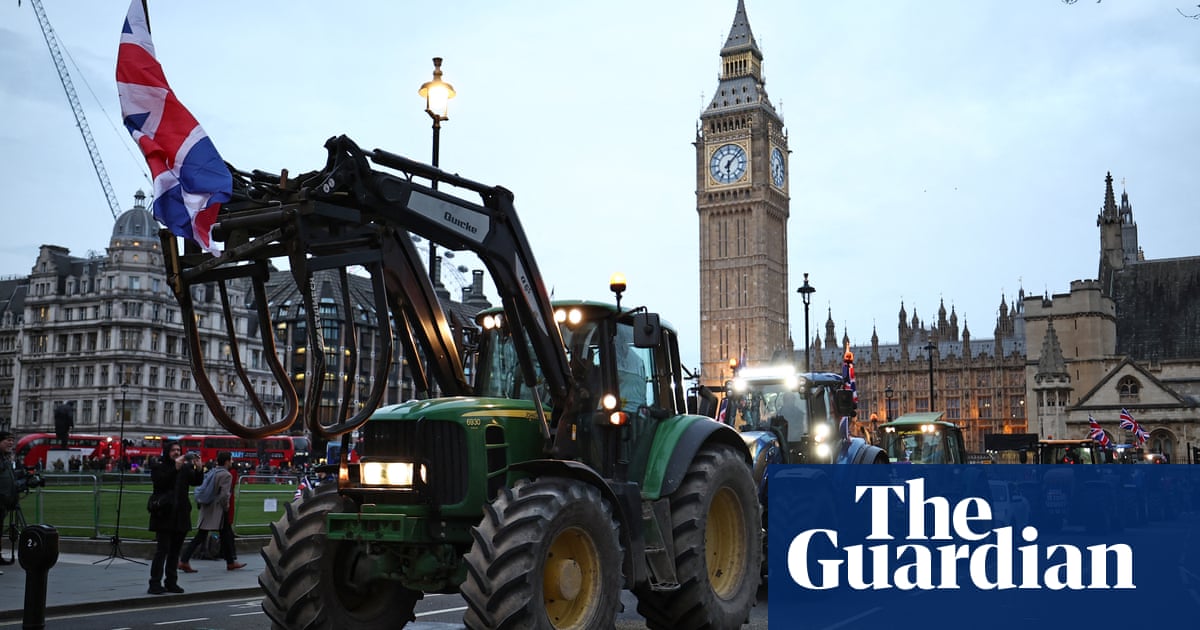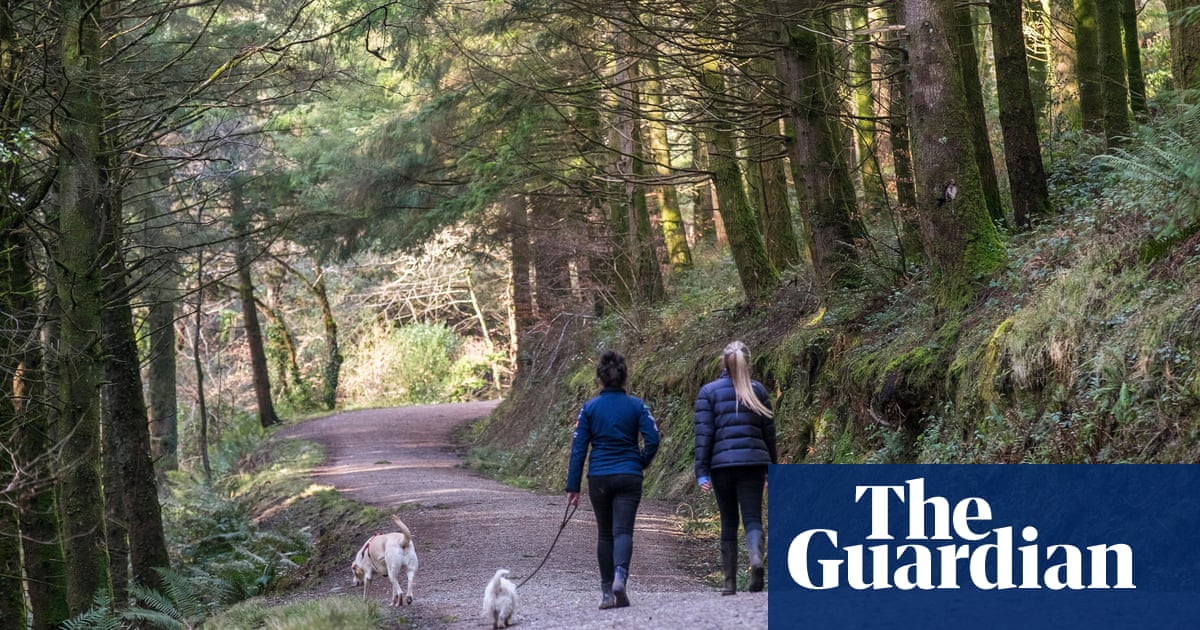In the next few weeks tractors full of indignant farmers could roll by the use of the stately streets of Westminster. They have had ample, they’re saying. The change to inheritance tax inside the authorities’s value vary remaining week was a blow – nonetheless it was moreover the most recent of a protracted assortment of blows. This is, apparently, as lots as they’ll take.
Rachel Reeves stirred up anger when she made a shock announcement on the worth vary that farmland value higher than £1m may very well be subject to inheritance tax. Since 1992, agricultural property discount (APR) has meant family farms have been handed down tax-free in a protection meant to bolster meals security and maintain people on the family land.
This is solely the most recent protection to impact agriculture over the last few years. For a very long time there had been anger over painful presents with supermarkets which, farmers talked about, pressured them to cut margins to the bone. Then bought right here Brexit, which launched broken ensures over commerce presents with Australia and New Zealand allowing low price meat produced to lower necessities into the UK and incensing farmers who felt undercut. It moreover meant a transition away from the subsidies of the EU’s frequent agricultural protection to a scheme throughout which farmers are paid for environmental objects, the provision of which was botched and delayed. Farmers have moreover confronted new export challenges and wrestled with entry to much-needed seasonal staff.
Farmers have moreover felt abandoned when extreme local weather circumstances introduced on by native climate breakdown have worn out full crops, whereas inflation has made enter costs resembling gasoline and fertiliser rocket.
The National Farmers’ Union (NFU) president, Tom Bradshaw, talked about: “After enduring years of being squeezed to the lowest margins imaginable, farmers are grappling with sky-high production costs for fuel, feed and fertiliser. Coupled with significant post-Brexit policy shifts and increasingly extreme weather conditions, there is nothing left for our nation’s food producers to give.”
The NFU is asking the federal authorities not solely to reverse the modifications to inheritance tax, nonetheless for a swathe of insurance coverage insurance policies. They want a statutory dedication to verify the UK’s self-sufficiency doesn’t drop beneath its current stage, making sure meals imports are produced to the similar necessities as those that British farmers are required to meet. They moreover want a evaluation into present chain fairness because of farmers’ margins have been squeezed as supermarkets make report earnings. A present look at found farmers take home decrease than a penny for every block of cheese or loaf of bread provided inside the grocery retailer.
The union is bringing 1,800 of its members to Westminster on 19 November to meet MPs and it’s anticipated totally different farming groups will stage a further “militant” protest on the similar day – although this has not been sanctioned by the NFU. Some farmers have even threatened to go “on strike” to disrupt meals offers.
Reeves’s value vary hit notably exhausting because of many farmers actually really feel unfairly blamed for an issue introduced on by a tax loophole exploited by the mega-rich. As a outcomes of that loophole, the price of land they’ve owned for generations has skyrocketed as consumers have bought up farmland as a tax wheeze. As a consequence, if farmers cross the land on to their kids, the tax bill could eat up a number of the income made by the farm.
Will White, a farm sustainability coordinator at Sustain, talked about: “Land values have soared, partly due to wealthy individuals exploiting the system, but it shouldn’t be farmers – particularly those committed to nature-friendly farming – who end up paying the price for this. Land should not be a tax haven for the wealthy. But this policy needs to find a way to distinguish between farmers working to provide public goods and nutritious food, and wealthy individuals seeking a tax break.”
Farmers moreover suppose the federal authorities simply isn’t being straight with them regarding the protection; the Treasury claims the modifications will solely impact 28% of farms, nonetheless data from the Department for Environment, Food and Rural Affairs reveals two-thirds may probably be caught by the tax.
Martin Lines, the CEO of the Nature Friendly Farming Network, talked about: “The speed at which the government is implementing these changes, along with the short timeframe it has set out, is neither particularly helpful nor fair. Farmers have been given very little time to plan their succession and ensure they can transition effectively from the old tax scheme to the new one.”
Some inside the sector suppose it’s truthful to ask the wealthiest to pay their share. As many farmers make a meagre living and keep in areas subject to cuts to GP surgeries and public transport, a further equitable system may probably be helpful.
Guy Singh-Watson, the founding father of the pure vegetable area agency Riverford, is a family farmer and grows greens on 60 hectares (150 acres) in Devon. He talked about that although he was indignant regarding the tax at first, when he appeared into it it appeared truthful and that these complaining have been the mega-rich.
after e-newsletter promotion
“Let’s be honest about where the loudest opposition to this policy is coming from and what their role has been on the value of our land,” he talked about. “The unintended consequence of the tax break given to landowners has been to inflate land prices and effectively exclude new entrants who are not substantial beneficiaries of their parents.”
Singh-Watson talked about: “Land in the French Vendée – where I’ve owned a 300-acre farm for the last 15 years – is less than a 10th of the price of equivalent land in Devon, where I also farm. To be a farmer there [in France] you have to be deemed fit to farm by the local administration. I doubt whether those who are simply buying up our country to keep more money and assets for themselves would pass that test. As a farmer of 50 years I have campaigned vigorously to defend the UK’s family farms but it should offend all farmers with mud on their boots that these people are claiming to represent us when in reality they are the ones making farming less affordable for genuine farmers.”
He talked about there could also be one different resolution to raise money that may upset farmers a lot much less and be further equitable and carry billions reasonably than the £500m anticipated to be gained from the APR modifications.
Singh-Watson talked about: “Given that Reeves wanted to extract some of the £40bn in tax rises needed to rebuild our country partly from landowners, another way to do this could have been to look at the 10- to 100-fold increase in land values when planning permission is granted. Farmers who benefit from this uplift can pay no tax whatsoever if the funds are ‘rolled over’, ie reinvested in land. Taxing these capital gains could arguably raise more and would probably be far less contentious.”
Another alternative, suggests White, is that the large agribusinesses and supermarkets which are liable for the inequity inside the present chain could have been centered in its place. “While some farmers will have to pay more, supermarkets and large agribusinesses continue to squeeze every last drop out of the food supply chain, leaving polluted rivers and ever more minuscule margins for farmers,” talked about White.
“This is a deeply unfair and extractive system. A fairer and more lucrative approach from government would be to start by taxing and better regulating the bigger players in the supply chain, where the real profits are made.”


